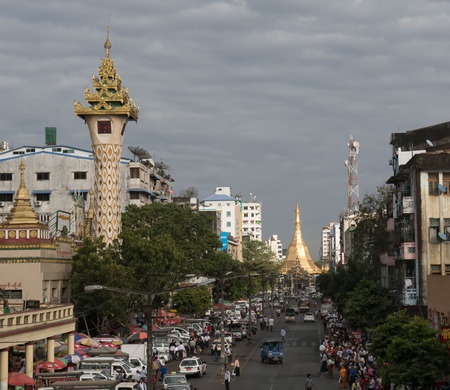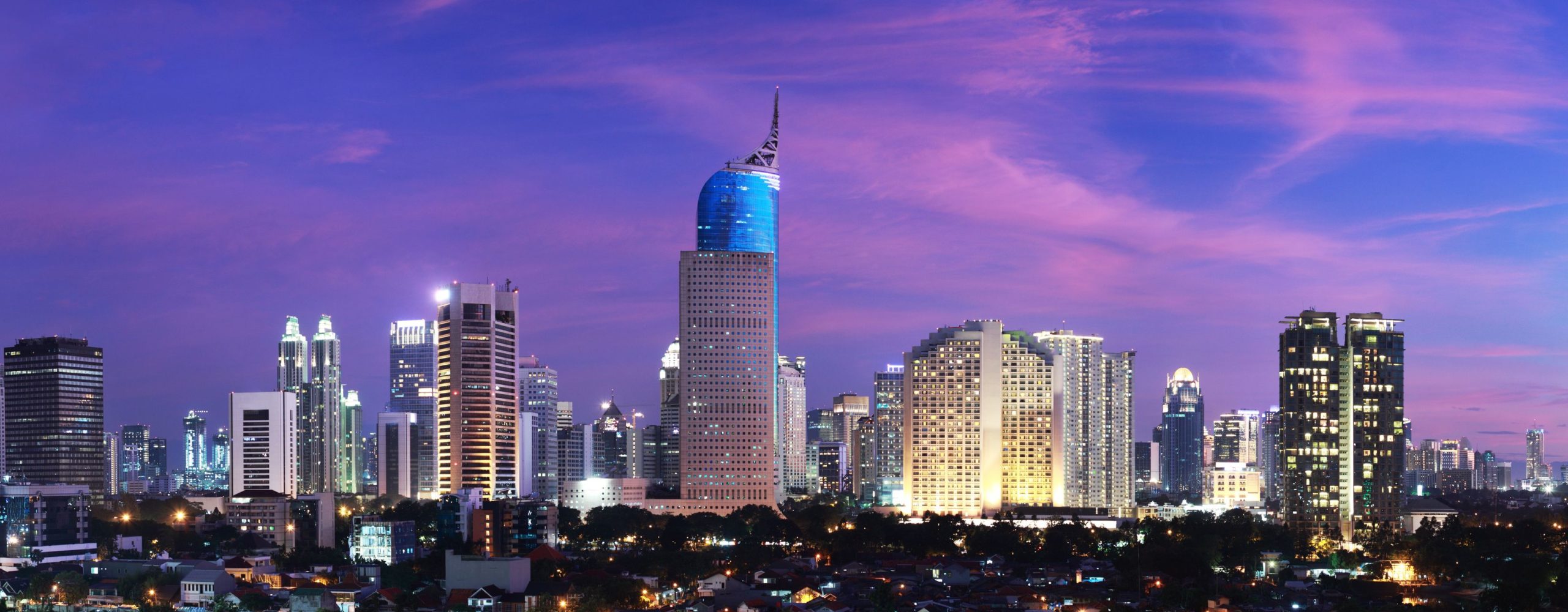29 September, 2016
Update from Washington
Peter Kucik, Principal – Inle Advisory Group
Erin Murphy, Founder and Principal – Inle Advisory Group
Following meetings in Washington with State Counsellor Aung San Suu Kyi on September 14, President Barack Obama announced that the United States will lift all remaining nancial and trade sanctions against Myanmar. This decision was made after ongoing consultations with the National League for Democracy (NLD) and at the request of Aung San Suu Kyi on behalf of the Government of Myanmar. Although the President made this intention clear, the decision will not be legally effective until he issues a new Executive Order terminating the Myanmar sanctions program. At that time, the sanctions imposed under the International Emergency Economic Powers Act (IEEPA) in the US Treasury Department’s “Burmese Sanctions Regulations” will no longer be in effect, and the prohibitions that have been “kept on the books” even while licensed will be removed altogether.
This includes all the restrictions involving new investment, nancial services, and imports of jade and rubies, as well as those targeting Specially Designated Nationals (SDNs) listed under the Myanmar sanctions program. As a result, there will no longer be any US sanctions impediments to nancial and trade transactions with Myanmar, and the previously sanctioned individuals and entities will be removed from the SDN list—dealings with them will no longer be prohibited once the program under IEEPA is of cially terminated. The requirements and limitations included in the previous licenses, including the US State Department’s “Reporting Requirements on Responsible Investment,” will also be eliminated along with the associated underlying prohibitions. There are however individuals and entities within Myanmar sanctioned under other authorities, such as the North Korea and Counter Narcotics programs, that will remain on the SDN list.
President Obama also announced the restoration of Myanmar’s Generalized System of Preferences (GSP) privileges effective November 13. The GSP program is intended to provide opportunities for developing countries to grow their economies through trade with the United States. GSP promotes economic growth by eliminating duties on nearly 5,000 types of products imported from over 120 designated bene ciary countries and territories. To qualify for GSP bene ts, a country must meet certain statutory requirements, including taking steps to ensure internationally recognized worker rights and provide adequate and effective protection of intellectual property rights. Without GSP, products sourced in Myanmar are subject to duties of as much as 17% when imported into the United States.
Congress has long held bipartisan interest in Myanmar, and two new bills were proposed before the President’s announcements that outline concerns about Myanmar and also seeks to support and encourage further reform and economic development. The proposed legislation would promote responsible investment, including international labor standards and transparency as well as environmental, anti-corruption, human rights protections, investigate the gem sector, and promote national reconciliation and peace efforts including through limited military-to-military engagement. The legislation also calls for benchmarks and guidelines for further sanctions relief, as well as efforts toward Myanmar’s eligibility for preferential treatment under the GSP program, which may have been rendered moot by the President’s announcements. Although some in Congress want to maintain sanctions pressure, members who have long supported Aung San Suu Kyi and the NLD will not want to stand in the way of her wishes and views of Myanmar’s needs.
While US sanctions have long set parameters for economic engagement in Myanmar, the President’s announcement effectively ends that practice. Though the SDNs and other restrictions under the Myanmar sanctions program will now be removed, investors must still contend with the myriad of issues present in the Myanmar market, as well as continue to undertake due diligence to ensure compliance with local and international standards and regulations. Additionally, the NLD has already shown that it will take action if its principles are not met—it has suspended permits for jade mining, temporarily banned logging, and postponed construction projects until environmental and corporate standards are de ned. The Government of Myanmar will now exclusively guide investment undertaken in the country, and the NLD will seek to promote transparency and anti-corruption, and limit negative environmental and social impacts, through enactment of its own laws and policies.
Changing Risks
Cem Ozturk, Associate Managing Director – Kroll
Recent developments in Myanmar and Washington are noteworthy, but despite any potential reduction of sanctions, companies investing or operating in Myanmar will continue to face scrutiny and sustained reputation risk from a range of directions — and at a level above that of most of its ASEAN neighbors.
In particular, issues related to corruption, land rights, forced labor/human traf cking, unregulated gemstone mining, environmental destruction, and the narcotics trade, among others, continue to present tangible risks across the economy – frequently seen in our work. While the above are focus areas for Aung San Suu Kyi’s NLD, the realities of the country’s nascent and still vulnerable institutions mean that these issues will continue to present challenges for at least the medium term.
Corruption in particular has the potential to escalate as regional autonomy in Myanmar grows in a way similar to that of Indonesia’s Desentralisasi – a policy which quickly increased local-level corruption across the archipelago. Given the continued role of the Myanmar military in the economy and in politics at the national and regional levels, as well as the economic interests of non-state armed groups, identifying risks connected to transactions will remain complex. This is compounded by high opacity in the local information environment, and the regularized use by Politically Exposed Persons of proxies, nominees, and intricate offshore vehicles developed during a long period of sanctions.
Ethnic con ict, sectarian and racial issues, and cartelization by military-linked companies will continue to intersect with investments, projects, and partnerships in ways that may surprise foreign businesses. Beyond sanctions, other legislation with potentially global reach such as the US Foreign Corrupt Practices Act, California Transparency in Supply Chains Act, the UK Bribery Act and the UK Modern Slavery Act can also potentially be triggered by abundant local and regional factors. On-the-ground, independent, professional investigation can help mitigate these challenges, and identify related risks.
An undeveloped culture of corporate governance requires that substantial due diligence, post-acquisition investigation, and anticorruption education remain critical elements of successful entry and sustained expansion in the market.
Companies willing to take the risks required to be part of Myanmar’s compelling growth story must continue to tread carefully, and responsibly – and to soberly evaluate who they are dealing with, and the realities of the opportunities at hand.
Legal Considerations
Tom Platts, Partner – Stephenson Harwood
Helen Rhind-Hufnagel, Of Counsel – Stephenson Harwood
The announcement that US sanctions on Myanmar will be removed is welcome to both foreign investors and Myanmar business interests. Despite the previous liberalisation of the US Myanmar sanctions regime, the continued existence of sanctions – of any form – has remained a signi cant obstacle for many investors, not to mention the hindrance this has caused Myanmar persons seeking services from overseas, in particular funding. A major practical challenge to conducting Myanmar-related business has been the dif culty of transferring funds through the heavily US-dominated global banking system, due to the additional layer of complexity and barriers caused by US sanctions. Once all US sanctions on Myanmar are removed, this should signi cantly simplify US Dollar fund transfers connected with Myanmar.
The lifting of the US sanctions will remove the prohibition on US investors doing business with some of Myanmar’s most established conglomerates, in some of the most lucrative industry sectors. It will also remove many a headache for investors from many other jurisdictions given the (not uncommon) lack of understanding of quite what US sanctions mean for non-US persons given the potential far-reaching indirect implications – and importantly, the risk of onerous consequences in the event of violation.
From a due diligence perspective, however, sanctions are just one of many key issues to address for would-be Myanmar investors. Investors should still, of course, conduct extensive legal, commercial and nancial due diligence into any proposed investment in Myanmar, and any Myanmar partner. While the Myanmar-speci c SDN list will disappear with the actual lifting of the US sanctions, if an investment involves a party previously on the SDN list, it will remain prudent to consider why such person was included in the SDN list in the rst place. Are there grounds to believe that the party committed a criminal offence (for example, certain SDNs’ alleged historical drug trade links)? Or are there allegations of land-grab? There could be a risk that litigious claims could follow, considering the increasingly vocal claims from within and outside Myanmar that previous land allocation often involved forced con scation without adequate compensation and ignored other community rights. For a variety of reasons the challenges involved in ascertaining land-related rights are likely to continue to plague investors in the foreseeable future, despite moves towards improving the situation.
Corruption and money-laundering risks will also remain valid major concerns for international investors, in part as certain home jurisdictions’ legislation imposes an extra-territorial effect. The Financial Action Task Force recently recognised Myanmar’s efforts to implement anti-money laundering measures in declassifying the country as a ‘high risk’ jurisdiction, but realistically investors must remain alert to related risks – and widespread institutionalised corruption is recognised as a major impediment to the country’s growth. Whilst, suitable contractual protection combined with implementing appropriate protective operational policies can assist in addressing these issues, risks will remain so it is crucial to seek appropriate professional advice to minimise these. While the pending removal of US sanctions makes Myanmar’s wealth of investment opportunities even more attractive, it will remain just as important for prudent foreign investors to ensure they adopt appropriate risk management strategies, including conducting extensive due diligence and seeking professional advice on applicable laws and regulations. And while the introduction of many new – and proposed new – laws and regulations should offer investors increased protection, given the often inconsistent approach to implementation, it is feared that in many areas an element of uncertainty is likely to continue to prevail.
For further information, please contact:
Tom Platts, Partner, Stephenson Harwood
tom.platts@shlegal.com

.jpg)




